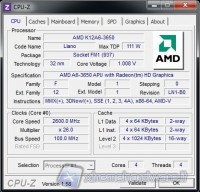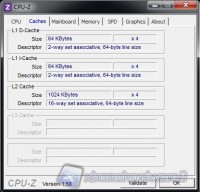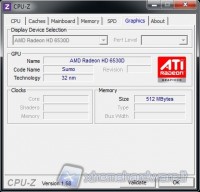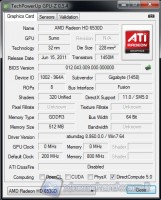Specifications
We begin our preview analyzing what are the specifications of the new AMD A6-3650.
We start CPU-Z, known software that can provide us with information regarding the architecture of the product, the frequency, the number of cores, the available cache as well as details on the model of the motherboard used, settings and type of RAM and video card type.
In the first window we can obtain information regarding both the CPU architecture, both the frequency and the number of cores / threads.
This processor belongs to the K12 family and is based on Llano architecture produced with 32nm technology.
As with all other Llano solutions also this APU is installed on a FM1 Socket with 905 pins.
Note that the processor has four cores operating at a frequency of 2.6 GHz (26 x 100 MHz bus).
The voltage is set to 1.008V by default and TDP is equal to 111W.
The new AMD A6-3650 has no L3 cache, as the other Llano solutions, but has 64Kb of L1 data cache per core and as many Kbytes of the first-level instructions cache.
The second-level cache amounts to a total of 4MB, 1024 Kbytes per core.
Through the sixth screen of CPU-Z or by using the well-known GPU-Z software, capable of providing insights on the graphics, we can obtain information on the integrated IGP.
The solution chosen by the Sunnyvale company is an AMD Radeon HD 6530D.
The IGP is constructed through the 32nm production process and is equipped with 1450 million transistors located in just 228mmq, the size of the Die.
The card supports DirectX 11 and has a shared DDR3 memory (with the system), this memory can operate at a frequency of 1866MHz, as such, the APU supports memory operating at that frequency.
Unlike the older sister AMD HD 6550D present in the AMD A8-3850, AMD HD Radeon 6530D is equipped with 320 Cores, compared with 400 of the mayor solution, 16 Texture Units, against 20, and operates at a frequency of 443MHz , compared to the 600MHz of the HD 6550D. This difference is what distinguishes the class of A6 APU from A8.





